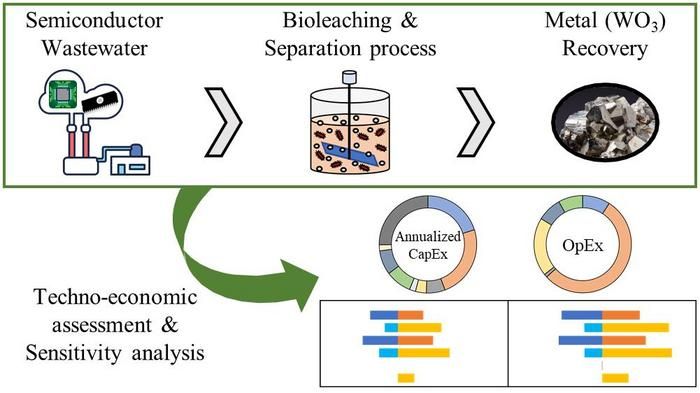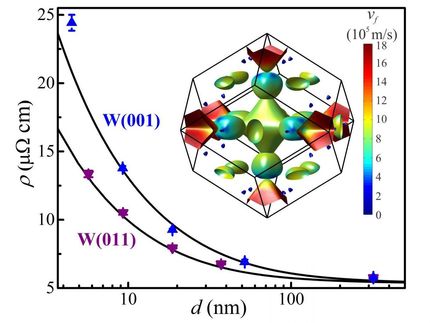Finding pearls in the mud: eco-friendly tungsten recovery from semiconductor waste
Advertisement
Semiconductor industry waste is typically seen as a costly disposal problem and an environmental hazard. But what if this waste could be transformed into a valuable resource? In an exciting development, researchers from Pohang University of Science and Technology (POSTECH) and the Samsung Advanced Institute of Technology (SAIT) have unveiled an eco-friendly method to extract rare metals from semiconductor waste. This innovative approach not only recovers precious tungsten but also assesses its economic viability, offering a sustainable solution for waste management in the tech industry.

Schematic design and economic assessment of tungsten recovery processes from semiconductor wastewater.
POSTECH
Professor Jeehoon Han from the Department of Chemical Engineering, alongside PhD candidate Yoonjae Lee and alumnus Hyunseo Choi, collaborated with Dr. Soonchun Chung and Dr. Joonsong Park from SAIT to pioneer an environmentally friendly and cost-effective process for tungsten recovery.
Tungsten is widely used in electronics, semiconductors, aviation, and automotive industries. Given its rarity and the limited number of countries where it can be mined, research into recovering metals from industrial waste has become increasingly important. To prepare for the depletion of these metal resources, recovering metals from industrial wastewater is crucial. Industrial wastewater, if not properly treated, can severely impact water quality and soil, making this field of research a promising solution for both resource recovery and environmental protection.
In this study, the research team used bioleaching to recover tungsten from wastewater generated by the semiconductor manufacturing industry and assessed the economic feasibility of the technology. Microorganisms, which can derive energy necessary for survival and growth from metals, dissolve metals from ores or waste using their natural capabilities. This method, compared to traditional chemical processes, has a lower environmental impact and can extract metals at relatively low energy and cost.
The researchers utilized the fungus Penicillium simplicissimum, commonly found in soil, air, and plants, to dissolve tungsten and other metals. Following bioleaching, they recovered tungsten from the solution using two purification processes: activated carbon-based adsorption-desorption and ammonium paratungstate (APT) precipitation.
The economic analysis revealed that the activated carbon-based adsorption-desorption process was about 7 percent cheaper than the precipitation process. The study found that improving microbial strain adaptation and growth, as well as reducing reaction time, were crucial for enhancing process efficiency. The research confirmed the economic feasibility of an environmentally friendly process for treating semiconductor industry wastewater, highlighting its significance in preventing environmental pollution and recycling resources.
Professor Jeehoon Han of POSTECH highlighted, “Our study demonstrates the economic and industrial feasibility of an eco-friendly bioleaching process for tungsten recovery.” Dr. Soonchun Chung of SAIT added, “We aim to enhance the economic viability of this process by developing high-efficiency microbial strains.”





























































